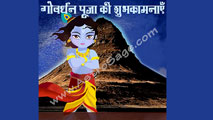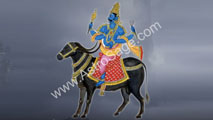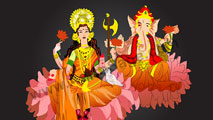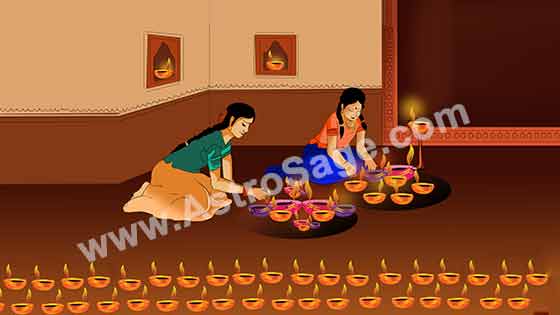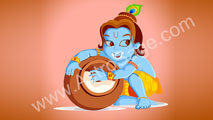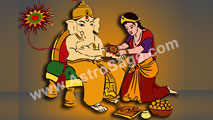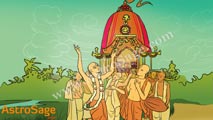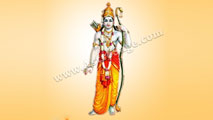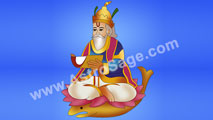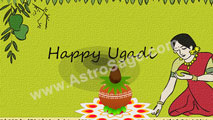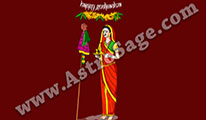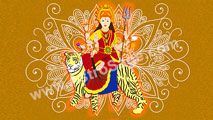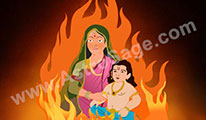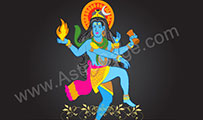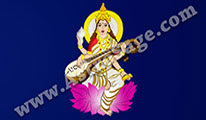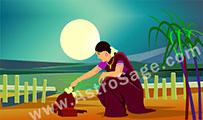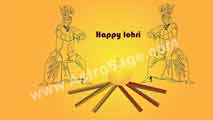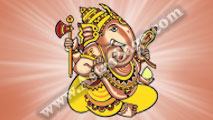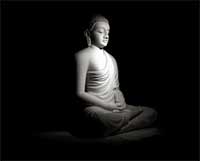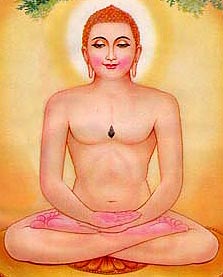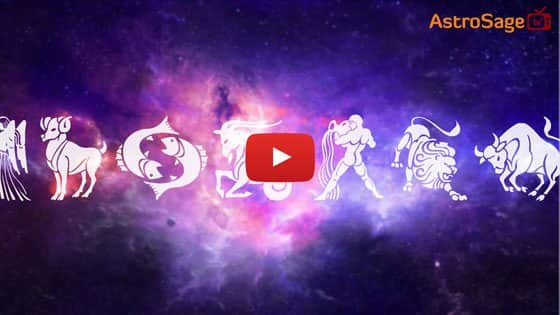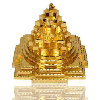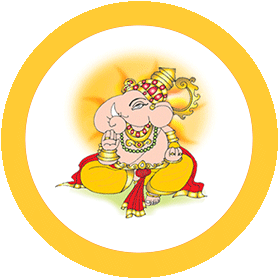இந்து திருவிழாக்கள் 2026 மற்றும் முகூர்த்தம்
Hindu religion is known for numerous festivals and celebrations. Since ancient times, Indian festivals are undergoing transformations and gaining new meanings. Festivals of India had always been a way to gain more prosperity in life and strengthening the bond with loved ones. That is why, we are here with Hindu Panchang containing the details of all the Hindu festivals observed in India and around the globe. It will help you in celebrating all these wonderful events during the Shubh Muhurat.
Hindu festivals are observed on the basis of movements and position of Moon (Lunar Month) & Sun (Solar Month) in the celestial belt. The date, time and auspicious muhurat for HIndu festivals can differ for two cities on the basis of location due to a difference in time zone.
They are widely known as Tyohar or Parva, i.e.when the day is celebrated and Hindu Vrat, i.e when one fasts during the day. On most of the festivals as per Hindu Calendar, fasting is significantly included, where one fasts for a whole day or by the time Moon appears in the sky. Since the ancient times, Hindu Calendar is used to measure time and day and marks the incoming of important days, muhurats and festivals.
Significance of Hindu Festivals
Festivals in India are auspicious affairs where people gather together to celebrate the festivities and share bundles of joy, love and well-wishing. It comprises of a series of joyful events marking the passage of rites and rituals during a lifetime. Vibrant feelings, colors, festivities and music make up the whole ambience, bringing it alive while adding to the enthusiasm, excitement and ritualistic nature.
People coming from overseas and landing on the Indian soil feel mesmerised and struck by the grand scale and infinite felicitation of Indian festivals. These are the moments where everyone gathers around and create some beautiful memories and commemorate great deeds of gods, goddesses, gurus, saints and prophets. In astrology, these festivals embark a new beginning in zodiac signs and being about tons of opportunities and chances for them in their horoscopes to attain desires and objectives.
Hindu festivals embark a great spiritual as well as religious significance, and consist of ancient codes and stories to rationalize its importance. Every festival comprises of morning bathing before sunrise, worshipping an idol, recite a jaap, prayer, mantra or kirtan and follow the day by fasting. These rituals prove to be much more than just festivities. They provide a sneak peek into our culture, beliefs and history. They narrate the philosophy of a nation throughout it course. Its effect can be wholesome in the following manner:
● Festivals help to create an environment of love, happiness and cultural harmony.
● It teaches the older and new generation the purpose of life, and how beliefs have lead them to lead a glorious life.
● They relieve the people from a monotonous routine.
● It teaches us to forgive our enemies, eliminate the bad within us and embrace each other with an open heart.
● These days hold a moral, cultural and ethical significance.
Significance of Muhurat During Festivals
In Hinduism, consulting an auspicious time or muhurat before commencing any big task, yagna, ritual or ceremony is practiced since ancient times. It holds a great significance during the time of marriage, fasting during festivals or conducting yagna for a ritual. Carrying out the ritual during this period ensures happiness, affluence and compatibility. It tells about both favorable (choghadiya, hora) to unfavorable time periods (rahu kaal) based on the position of constellations in the universe and time of sunrise and sunset.
Muhurat is said to be a combination of a specific date, time and day auspicious to carry out any activity. Hindu Panchang specifies a day and date when a festival occurs, and during those hours, muhurat represents that specific auspicious period during which a native can carry out the rituals, puja or hawans to attain maximum benefits. A combination of Vaar (day), Nakshatra (stars), Tithi (date), Karan, Yog in a Panchang (Hindu calendar) makes up for a favorable time to recite the mantra, start the fast or worship on the day of festival.
Muhurat proves to be very useful for natives who have lost or do not have their kundli or birth chart and need remedies to get rid of malefic effects of planets or doshas. One attains maximum results during an auspicious muhurat.
Hindu Festivals: Panchang, Lunar & Solar Cycles
Many Hindu holidays are calculated on the basis of lunar cycles present in the lunisolar calendar system. Dates for few festivals such as Pongal, Vaisakhi and Sankranti are calculated on the basis of solar cycle. There are innumerable festivals observed in India due to acts of worship, fasting, offering to deities, rituals, charity, celebrations, puja, aarti, signifying an ancient Hindu mythology and so on.
In most cases, festivals coincide with the phenomenon of New or Full Moon or after the Moon phase. They occur on the same day in all regions of India, although the date may vary depending upon the calendar. As per Vedic Astrology, Hindu Panchangam comprises of five limbs which contributes to churning out an auspicious muhurat for a specific festival. They are described below:
● Tithi: Also called as the “Date”, a Lunar Month is divided into 2 Paksha called Krishna and Shukla Paksha, which comprises of 15 Tithis each.
● Vaar: Known as the “Day”, HIndu Calendar comprises of seven vaars, which are Sunday, Monday, Tuesday, Wednesday, Thursday, Friday and Saturday.
● Yog: Called as “Luni-Solar Day”, there are 27 yogas in Vedic Astrology.
● Karan: Karan is also known as “Half-Lunar Day”. there are 60 Karan in a month, out of which seven are movable and four fixed.
● Nakshatra: Hindu Astrology says that there are 27 different constellations in the universe.
Festive season in India is widely rejoiced by the people not only because of their historic significance but deep-rooted cultural norms and beliefs. Panchang defines good and bad time in one’s life and provide information about auspicious and inauspicious time to carry out any task, activity or puja during festivals.

 ₹
₹ 





